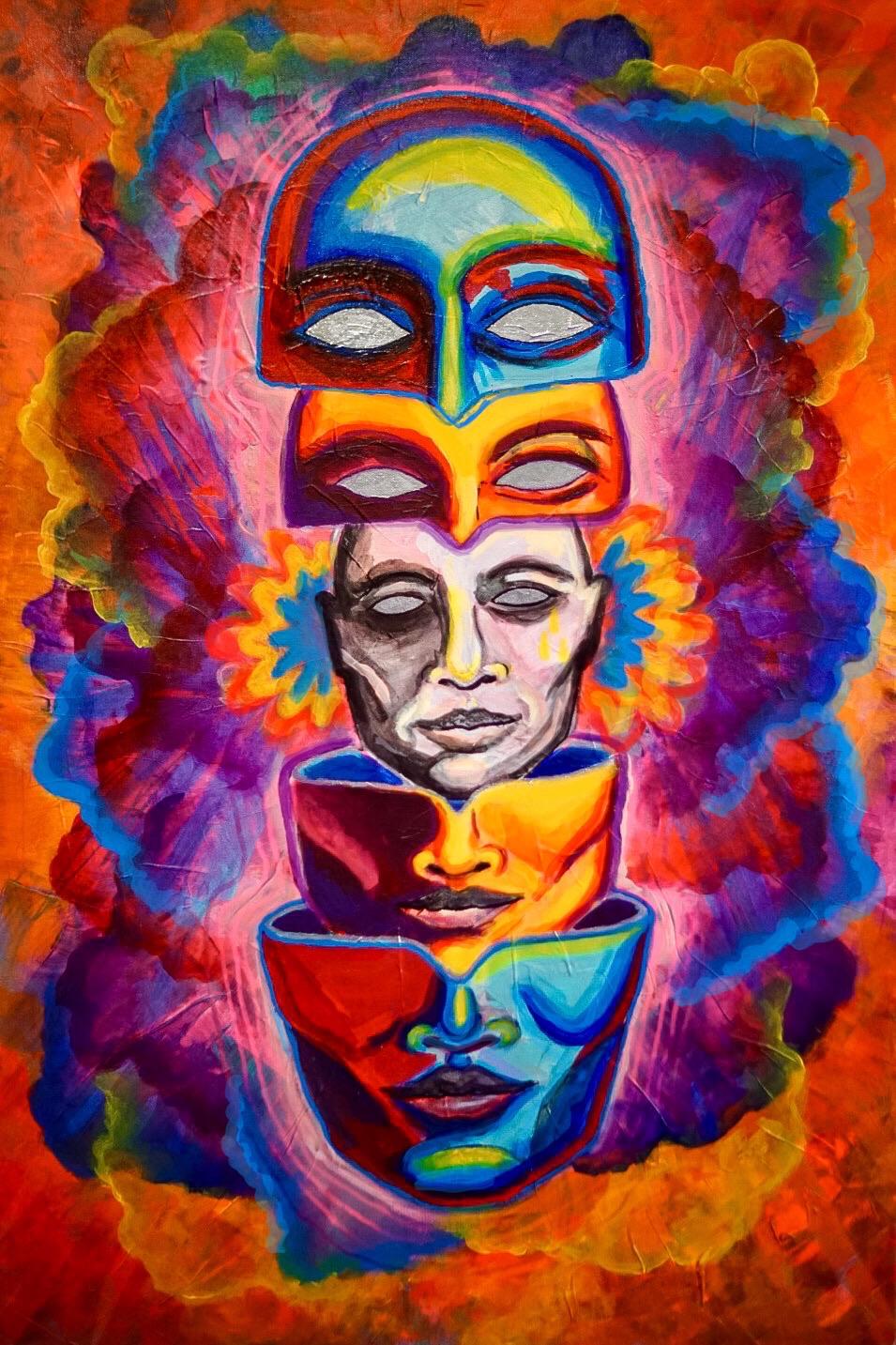Acceptance is recognizing that there is nothing wrong with you. It’s okay to be flawed, to make mistakes, and to look disheveled in the morning. It’s okay because you are worthy just as you are.
Cultivating any level of self-acceptance has been a long journey for me. Specifically, shedding the expectations society and others have placed on me and embracing my authentic self. Admittedly, this process is painful. Heteronormative gender roles, advertisements, and the media all create a blueprint for what we need to do to “earn” acceptance. But only recently did I realize that this narrative—these false identities—are constructed through political and economic interests. And they’re all bullshit.
Humans have an innate desire to fit in, to be accepted, to belong. It’s a survival instinct from ancient times when being an outcast meant death by a sabretooth tiger or some other prehistoric threat. While society has evolved, our need for acceptance hasn’t. We still seek a tribe, craving intimacy and connection. I’d argue we need it to live fully. We rely on each other—that’s humanity’s strength and why we remain at the top of the food chain.
Despite the fearmongering on the news and social media, we are living in the safest period of human history. For those in affluent nations, this is the safest time to be alive. That doesn’t erase the existence of social, economic, and political injustices, but it means you can walk down the street without a high chance of being murdered or attacked. This shift implies something critical: for the first time, we don’t need to fit into a tribe for survival. We can choose our tribes, or better yet, create our own and find acceptance on our terms.
The point is that accepting our authentic selves is not only possible—it’s necessary. We don’t need to conform to rigid norms or arbitrary hierarchies designed to ensure survival in a past era. Instead, we can embrace our individuality. We can drop the mask society handed us and say, “This is me, motherfucker. Take it or leave it.”
For me, I struggled for years with what it means to be a man. Growing up in my Latin community, I never fit into the machismo mold—stoic, aggressive, or emotionless. Men around me washed down their feelings with beer and cigars, and I was expected to do the same. But it felt like a performance. It wasn’t me. From a young age, I was sensitive, emotional, creative, and introverted. I loved animals, nature, reading, and writing. None of these traits fit the “manly” stereotype, but they were authentically me.
I wrestled with this authenticity for so long. I tried on different personas, craving any crumb of acceptance from those around me. I thought I needed to sleep with lots of women, wear certain brands, and care about Instagram followers—all things society told me defined my worth. But none of it resonated with me. I wanted deep conversations, meaningful relationships, and mental health. But men my age weren’t conditioned to value those things.
What I’ve come to realize is that the acceptance I needed wasn’t external. It was internal. I needed to accept who I am, not the version others expected me to be.
Self-acceptance isn’t a destination; it’s an ongoing journey. It’s a process of self-actualization that requires stepping back from societal expectations and asking, What makes me feel whole? Then, it’s about embracing those things, even if they go against the grain. It means tearing off the mask and letting the world see your true face.
Here’s the thing about masks: they get hot and suffocating. Eventually, we get tired of pretending and rip them off because it’s exhausting being someone we’re not. Self-acceptance doesn’t mean we don’t strive for growth or improvement. It just means we’re enough as we are.
But authenticity comes with risks. When you shed the mask, some people may reject you. They liked the illusion, not the real you. This is the paradox of authenticity—it’s vulnerable and exposes you to hurt. Yet, the reward is worth the risk. By being genuine, you’ll find people who accept you for who you truly are, and those connections will be deeper and more meaningful.
Authenticity is hard. It opens you up to rejection, social isolation, and awkward family gatherings. But when we stop performing and start living authentically, we create space for a more fulfilling life. You may lose some people along the way, but the ones who remain will be your true tribe. A tribe where you belong, not because of conformity, but because of who you are.
This is self-acceptance—recognizing your worth regardless of what society says. It’s embracing your authentic self through vulnerability and courage. It’s acknowledging that not everyone will be down with that, and that’s okay. It’s knowing that you are perfect as you are, while still leaving room for growth. When we have the courage to embark on this journey, we’ll find our place. But only if we find ourselves first.

